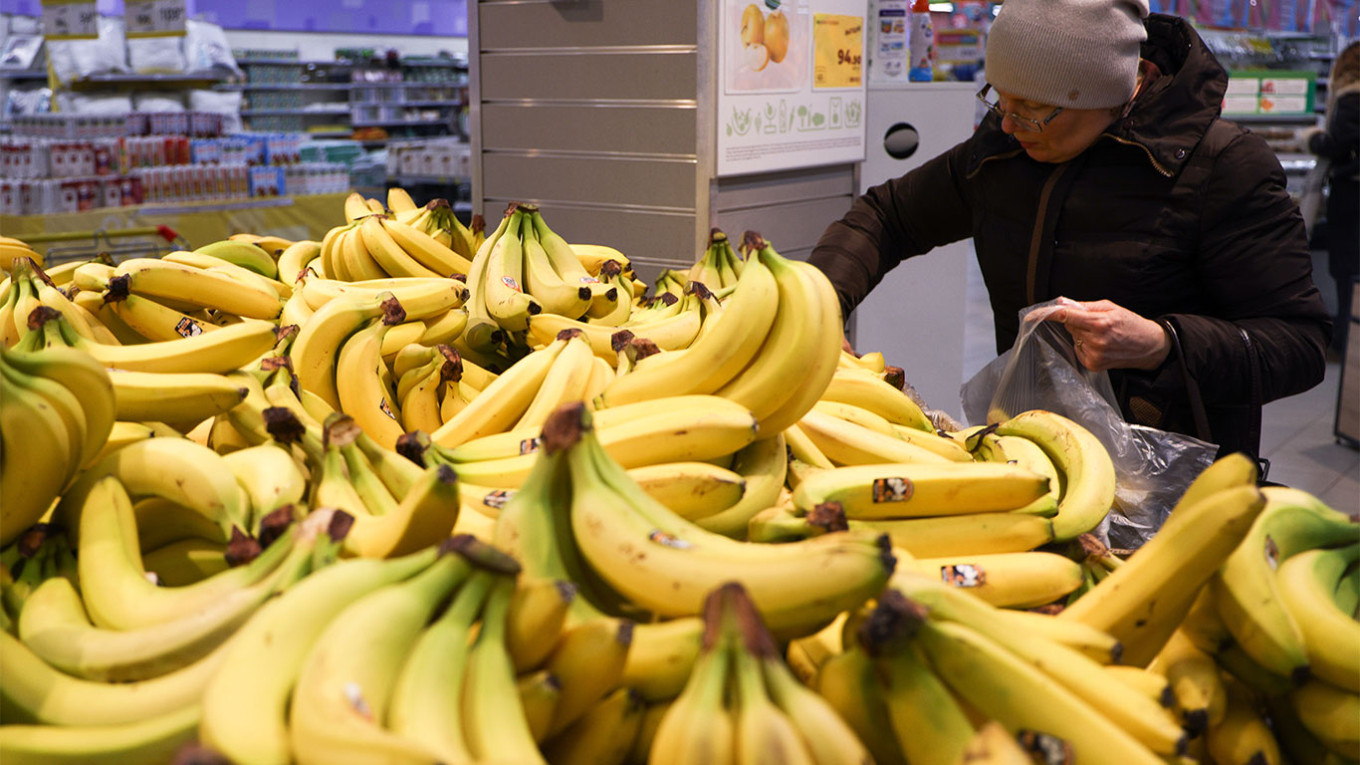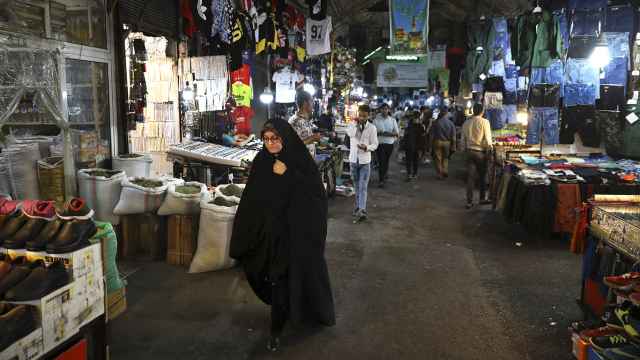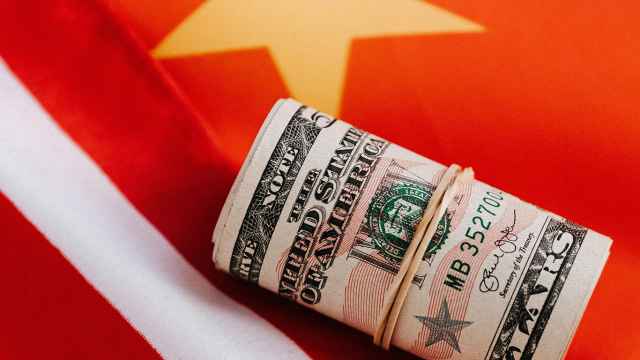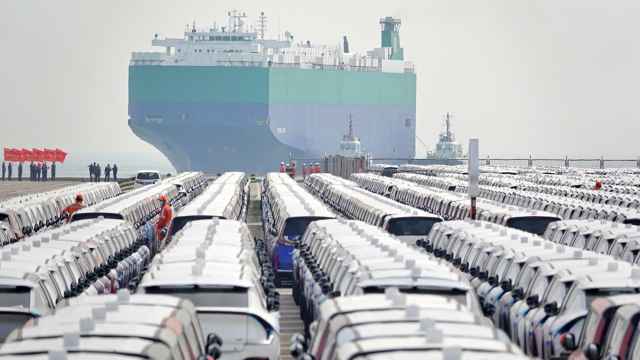Russia's food safety watchdog Rosselkhoznadzor has partially lifted an import ban on bananas from Ecuador, the Kommersant business daily reported Friday.
Moscow said earlier this month it was suspending authorizations for five Ecuadorian banana exporters due to the detection of pests. Thirteen other exporters were later added to the ban, importers told The Moscow Times' Russian service Wednesday on condition of anonymity.
"In essence, it's a trade embargo," one Russian banana importer was quoted as saying.
The decision came in the wake of Ecuadoran President Daniel Noboa's announcement on Jan. 10 that he had accepted a U.S. offer to exchange the Soviet-era equipment for modern weapons in a $200 million deal.
Washington said it planned to send the Ecuadorian military hardware, which Noboa had described as “scrap,” to Ukraine to help in its defense against Russia’s nearly two-year invasion.
Rosselkhoznadzor chief Sergei Dankvert reversed the original ban on five Ecuadorian banana exporters ahead of talks with his counterparts from the South American country, according to Kommersant.
Ecuador’s Foreign Ministry said early Friday it was sending a delegation to Moscow to resolve the banana export issue.
The state-owned Russian Agricultural Bank, meanwhile, forecasted a nationwide banana shortage as early as March due to the import ban.
Russia imports nine out of 10 bananas from Ecuador, whereas the Central American country exports around one-fifth of all of its bananas to Russia.
Rosselkhoznadzor said earlier this month that Russia had begun buying bananas from India to boost imports after the loss of Ecuadorian producers.
However, there are major logistical hurdles that would need to be overcome before Russia can make the switch, according to an industry insider.
"There is no established transport [of bananas] from [India], there are no regular ships. It turns out that you need to immediately start carrying huge amounts [of bananas]... but at the same time, there is no certainty that shipments will come through," the insider, who asked not to be named, told The Moscow Times.
Russia could also import bananas from other South American countries like Colombia.
"But retail chains traditionally don't like to sell Colombian bananas, without any objective reasons. Plus, I don't think Colombia has the production capacity," the insider said.
"Theoretically, Russia could switch from Ecuador to some other country, but given the fact that 97% of our [banana] imports for retail come from Ecuador, it's unlikely that it would be the same volume," they added.
AFP contributed reporting.
A Message from The Moscow Times:
Dear readers,
We are facing unprecedented challenges. Russia's Prosecutor General's Office has designated The Moscow Times as an "undesirable" organization, criminalizing our work and putting our staff at risk of prosecution. This follows our earlier unjust labeling as a "foreign agent."
These actions are direct attempts to silence independent journalism in Russia. The authorities claim our work "discredits the decisions of the Russian leadership." We see things differently: we strive to provide accurate, unbiased reporting on Russia.
We, the journalists of The Moscow Times, refuse to be silenced. But to continue our work, we need your help.
Your support, no matter how small, makes a world of difference. If you can, please support us monthly starting from just $2. It's quick to set up, and every contribution makes a significant impact.
By supporting The Moscow Times, you're defending open, independent journalism in the face of repression. Thank you for standing with us.
Remind me later.







